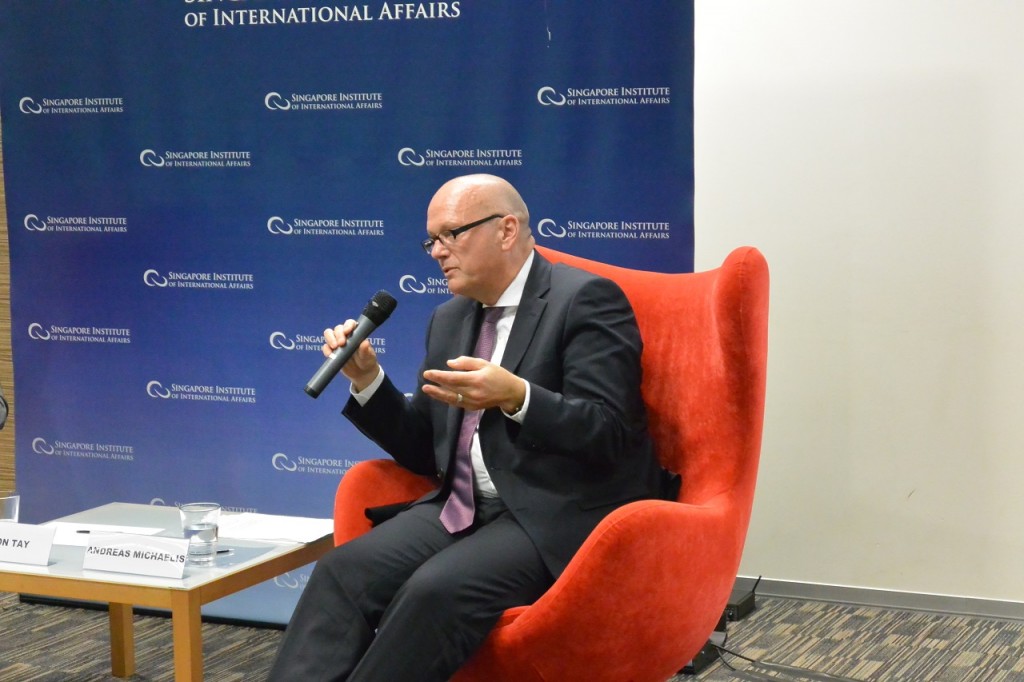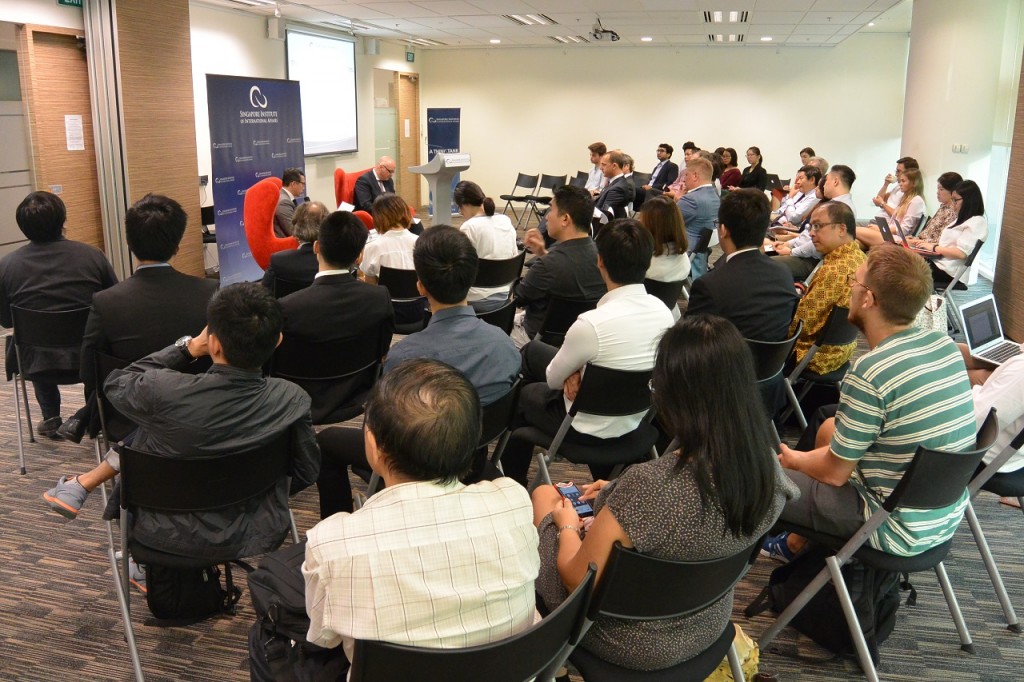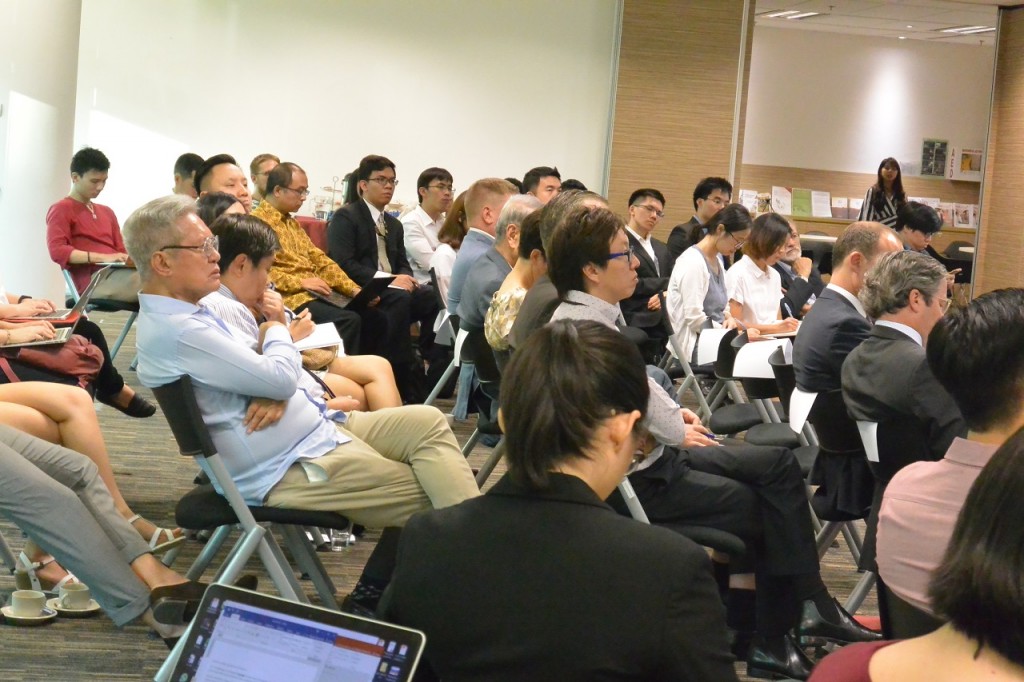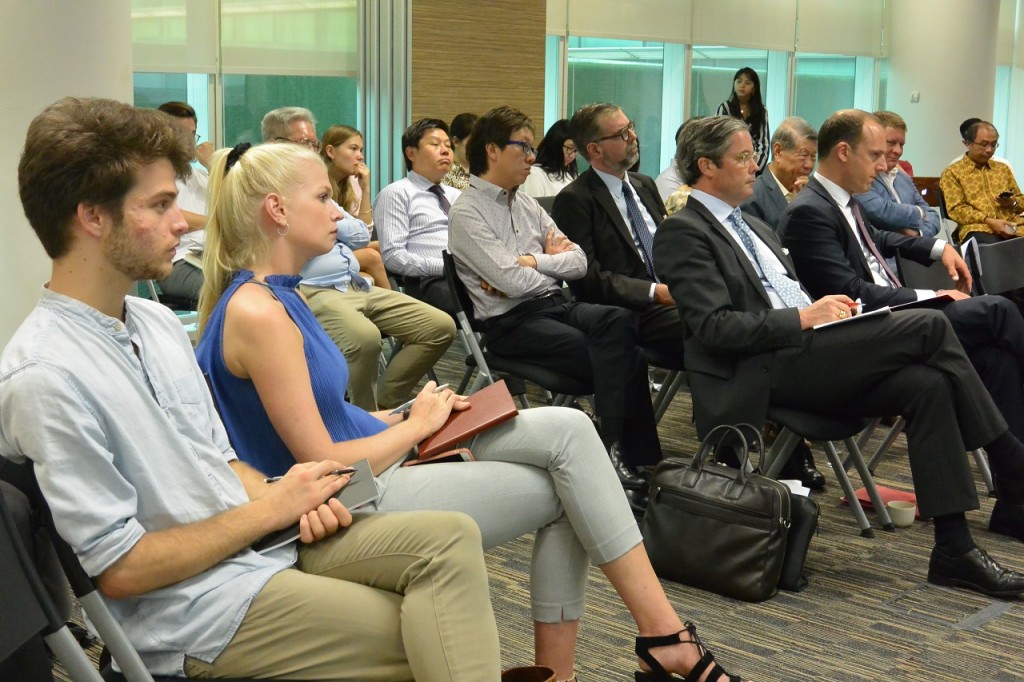The European Union is currently facing a wide range of challenges, including a difficult relationship with the United States, Brexit, tensions with Russia, and a migrant crisis linked to instability in the Middle East. Is multilateralism dead, or are there ways to strengthen international cooperation? We hosted Mr. Andreas Michaelis, State Secretary of the Federal Foreign Office, Federal Republic of Germany, for a talk at the SIIA on Wednesday 12 September 2018.
Here’s a summary of Mr. Michaelis’ comments, including points raised during the Q&A session. The full text of Mr. Michaelis’ prepared remarks is also available online, in our commentaries section.
Farewell to Multilateralism?
In the current global environment, many argue that multilateralism is on its way out. However, both Germany and Singapore are trading nations, with a vested interest in supporting a level playing field.
But if the US is withdrawing to some degree from global affairs, other countries need to assume more responsibility. Germany hopes to strengthen Europe as a force for security, an advocate for an open and just international order, and a pillar for a rules based order. Mr. Michaelis emphasised that their goal is not ‘Europe First’, but to strengthen ties around the world.
In this context, German Foreign Minister Heiko Maas recently called for countries to form an “Alliance for Multilateralism”. South Korea and Japan have shown interest, and Germany hopes that Singapore and ASEAN will be partners.
Transatlantic Relations and Trade
Currently, the EU and US are engaged in trade talks, and negotiators hope to have a partial deal inked by November. However, in response to a question from SIIA Chairman Simon Tay, Mr. Michaelis noted there are potential stumbling blocks. The US would prefer to have agriculture on the table, but the agriculture sector is very important to France. Additionally, the tariff issue is complex due to global supply chains. The US has threatened to impose tariffs on EU car imports, targeting countries such as Germany, but BMW is also the largest car exporter from the US.
But Mr. Michaelis stressed that Europe is still “deadly serious” about its relationship with the US. The current frictions are not of their choosing, but it is “not an excuse” to turn their back on the US. Mr. Michaelis noted that, on a global level, the EU is prepared to discuss ways to reform the World Trade Organisation (WTO). He also pointed out that China’s interpretation of free and fair trade is debatable; on matters such as forced technology transfers, foggy state subsidies, and export of excess capacity, Europeans do see eye to eye with Washington.
FTAs and EU-ASEAN
With the global economy under strain, the EU must invest more into research and development and European infrastructure, and these will be among the priorities for the next annual European budget.
Europe will also need to strengthen ties to partners around the globe. The recently signed EU-Japan Economic Partnership Agreement is an important step. The EU has concluded FTA negotiations with Singapore and Vietnam, and has started talks with five other ASEAN countries. The EU’s ultimate goal remains a region-to-region EU-ASEAN FTA. In response to a question on whether the FTA talks are taking too long, Mr. Michaelis stressed that the EU-Singapore FTA is on track for signing in October. He noted that negotiations for EU FTAs do unfortunately take some time, but Germany is very serious on free trade, and would like to move faster.
Brexit, Populism and Polarisation
Answering a question on Brexit, Mr. Michaelis warned against believing pessimistic media reports about a hard Brexit, and that there is still a good chance of a negotiated exit in the next two or three months. But he acknowledged that there are areas of cooperation where things will become more difficult post-Brexit.
The UK’s Brexit vote has been widely seen as a manifestation of populism and polarisation at the ballot box. Replying to a question on political polarisation in Europe and the issue of migrants and refugees, Mr. Michaelis cited the recent demonstrations in Chemnitz, following the death of a German man after a fight with two Afghan suspects. Far-right protestors openly chanted Nazi slogans, which are illegal in Germany. This is a new phenomenon, as the far-right has never been so bold. This is occurring against the backdrop of the rise of Alternative for Germany (AfD), a populist far-right party which is now the third largest in the Bundestag after the 2017 election. This illustrates that migrant issues still loom large in European politics, and is a challenge Europe has to deal with.








